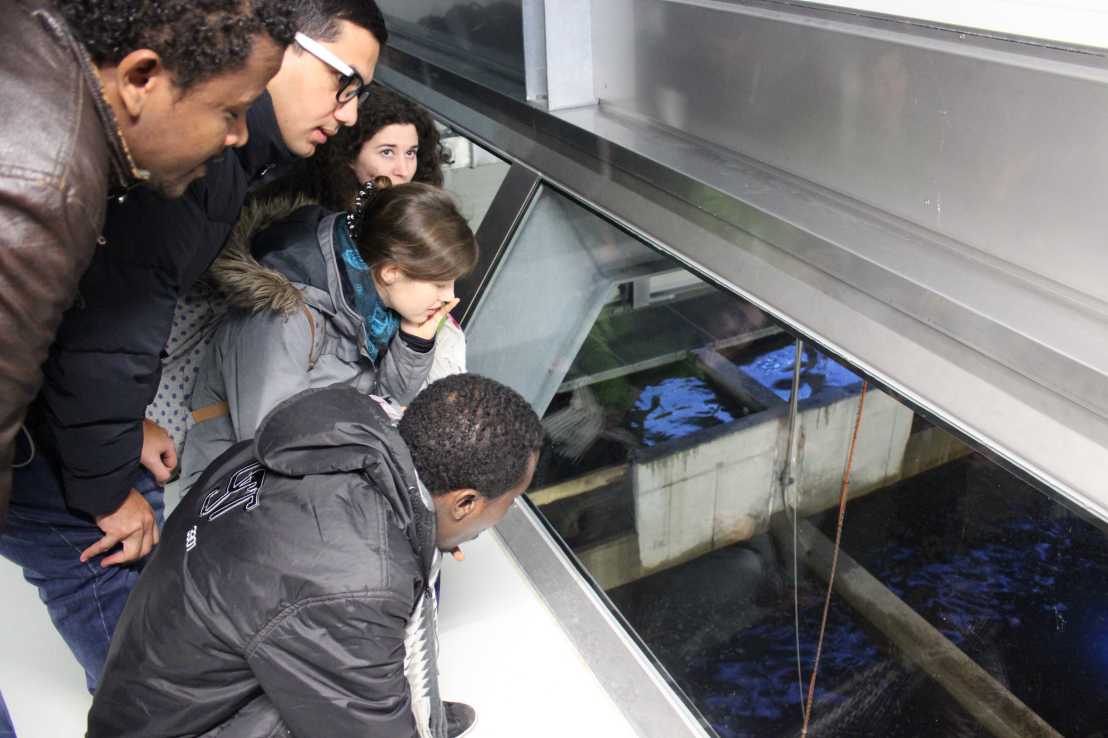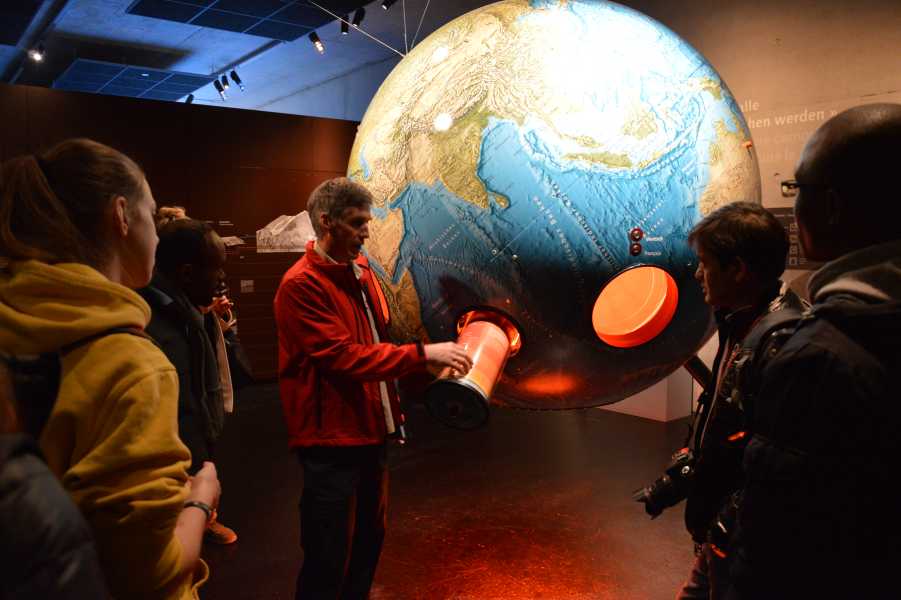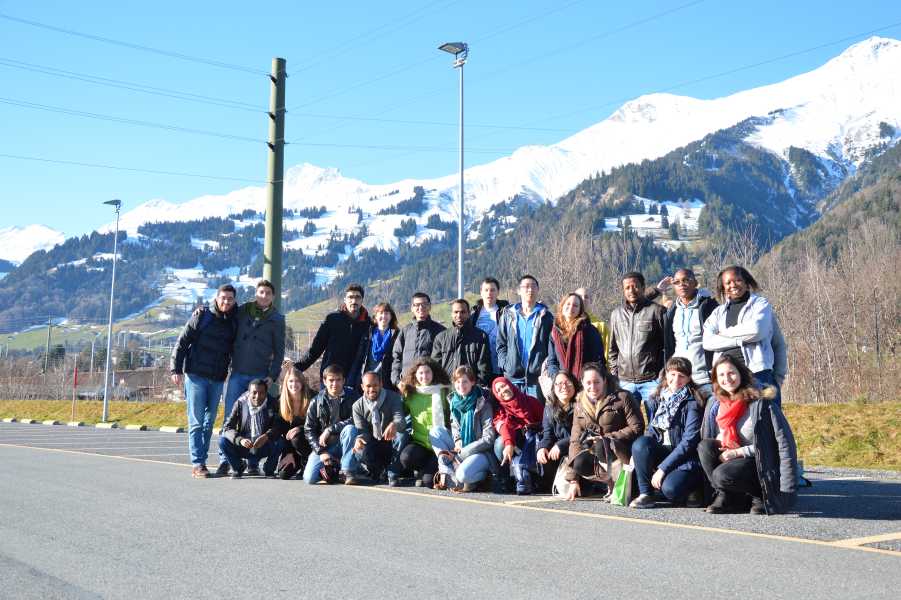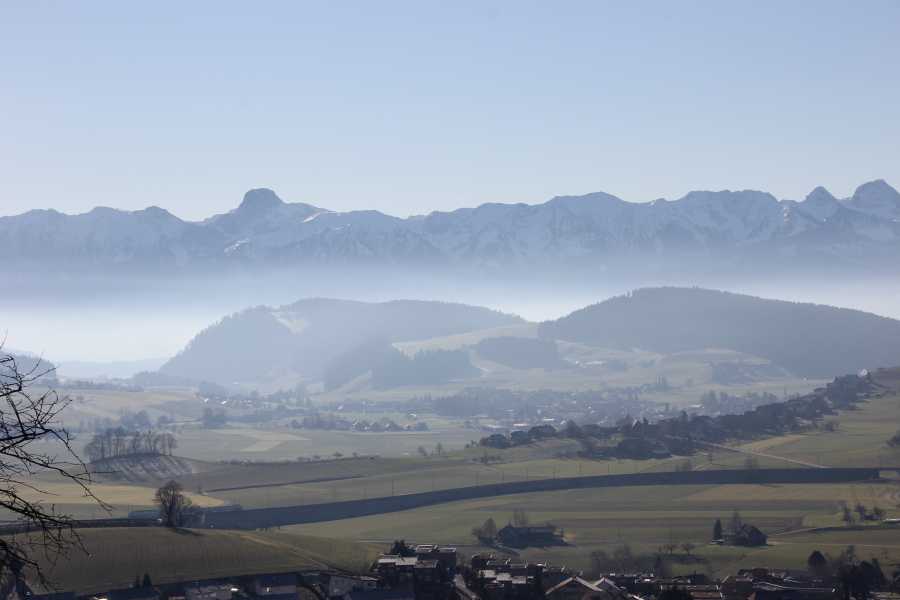E4D Winter School on Global Water Challenges
ETH Zurich's first winter school in the programme "Engineering for Development (E4D) - Science & Technology for the South" focused on Global Water Challenges. 24 students from around the world attended the E4D Winter School, hosted by ETH Global.

The three week programme focused on three key topics of Global Water Challenge: Water & Health, Water & Food, and Water & Energy. The Master and Doctoral students spent the first week in various places in the canton Bern, followed by two weeks at ETH Zurich. In addition to daily lectures or excursions, the participants worked in small groups on three case studies dedicated to the three key topics, modeling solutions for Bolivia, China and Zambia. The participants learned about the complexities of water policies and were challenged to assess technical solutions in a broader societal context.
Experts from Swiss academic and research organizations shared their knowledge with the students: experts from ETH, from the Swiss Federal Institute of Aquatic Science and Technology EAWAG, the School of Agricultural, Forest and Food Sciences HAFL, and from the University of Applied Sciences and Arts of Southern Switzerland SUPSI, as well as experts from organizations such as IUCN (International Union for Conservation of Nature), WWF (World Wide Fund for Nature), and SDC (Swiss Agency for Development and Cooperation).
The winter school was the first of three winter schools in the programme “Engineering for Development (E4D) - Science & Technology for the South“. The goal of the E4D programme is to promote the development of products and methods which are directly relevant for improving the livelihoods of poor people in developing countries. Hence, the winter school aimed at exposing the participants to selected topics of high relevance in E4D and preparing them to develop context-sensitive solutions.
The programme, funded by the Sawiris Foundation for Social Development, included scholarship support to students from low income countries who otherwise would not have been able to participate. In total, 14 countries were represented, and half of the participants were female.
The winter school provided an environment in which the students could work together in interdisciplinary and intercultural teams. They learned a great deal from each other as they came from different academic backgrounds such as Physics, Geology, Hydropower Engineering, Landscape Architecture and Environmental Planning, Water Science, Mechanical Engineering, and Nutrition and Health. The different educational backgrounds and the student’s high performance added great value to the group work which led to high quality outputs.
The participants used this opportunity to enlarge their networks, start collaborations, get to know the research at ETH, and think about their future as professionals for development within the “Global Water Challenges”.
E4D Winter School excursion to the Tropenhaus Frutigen



